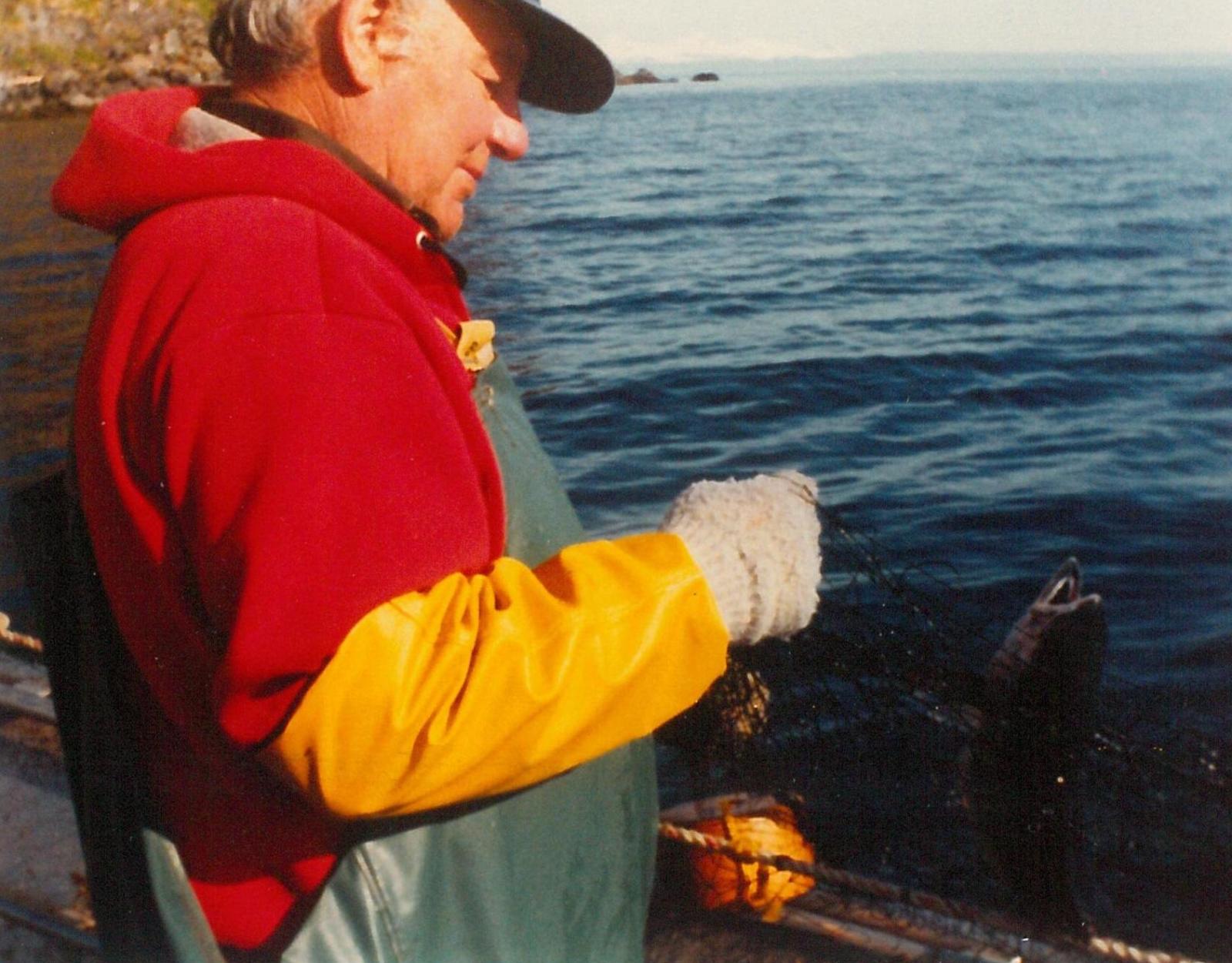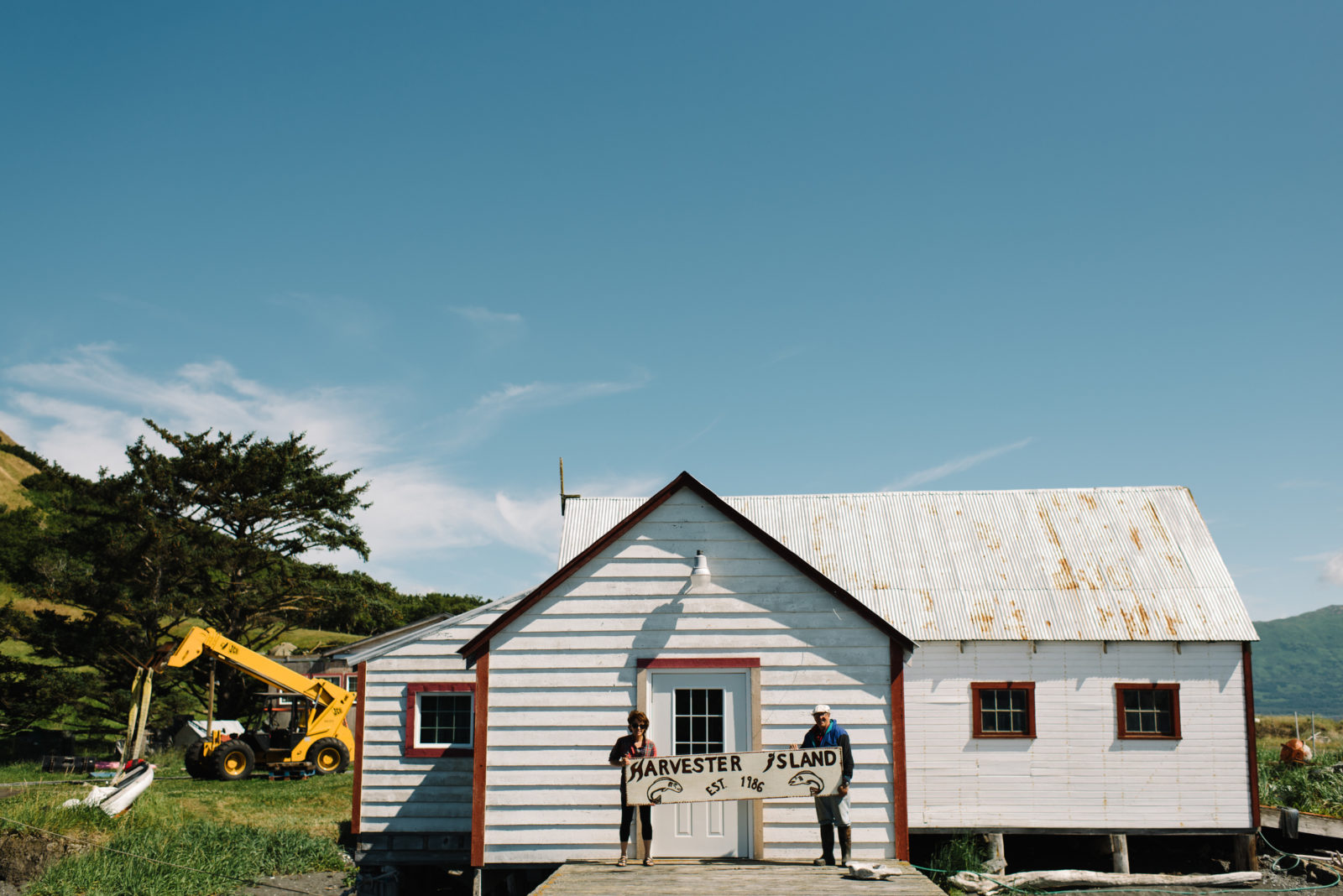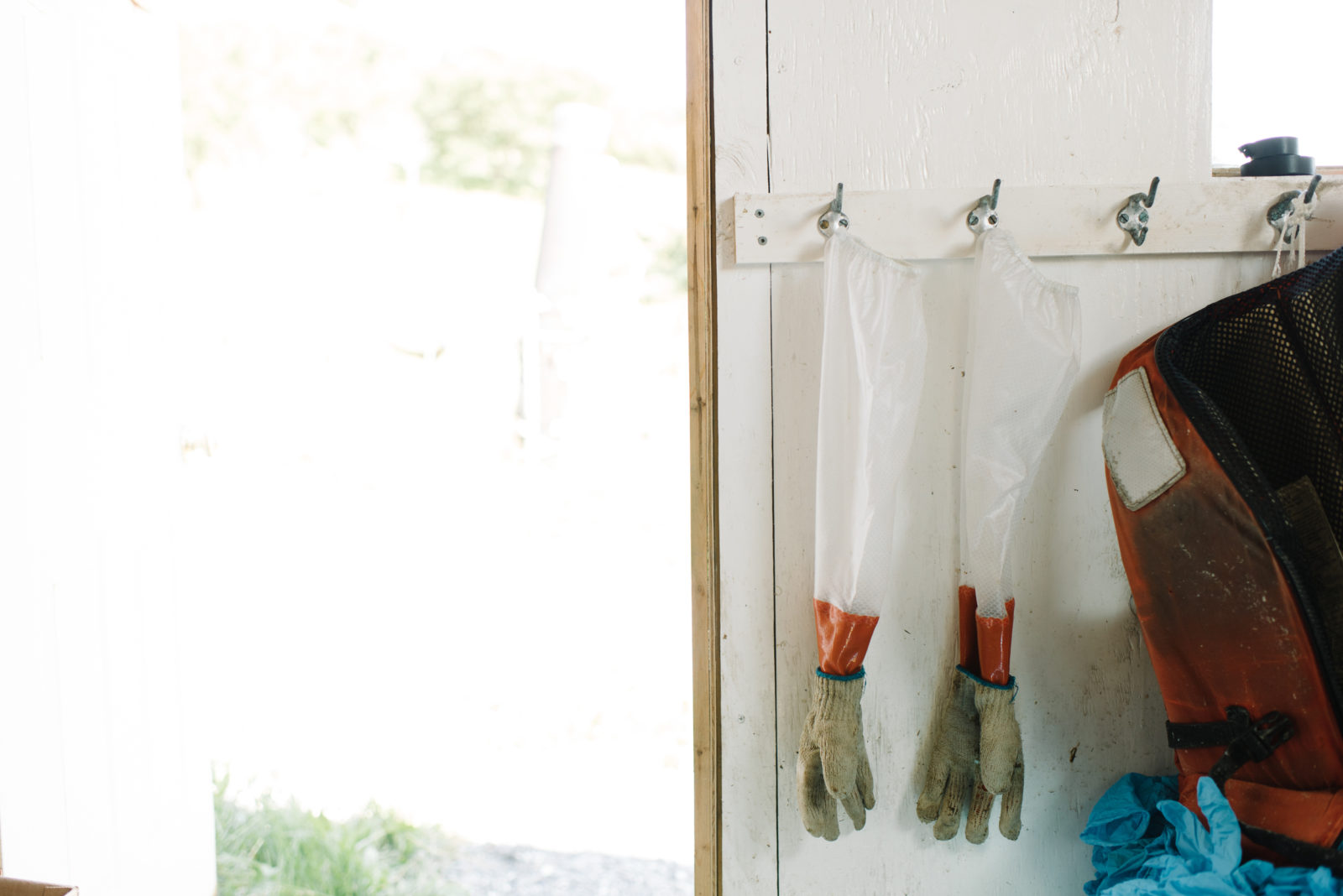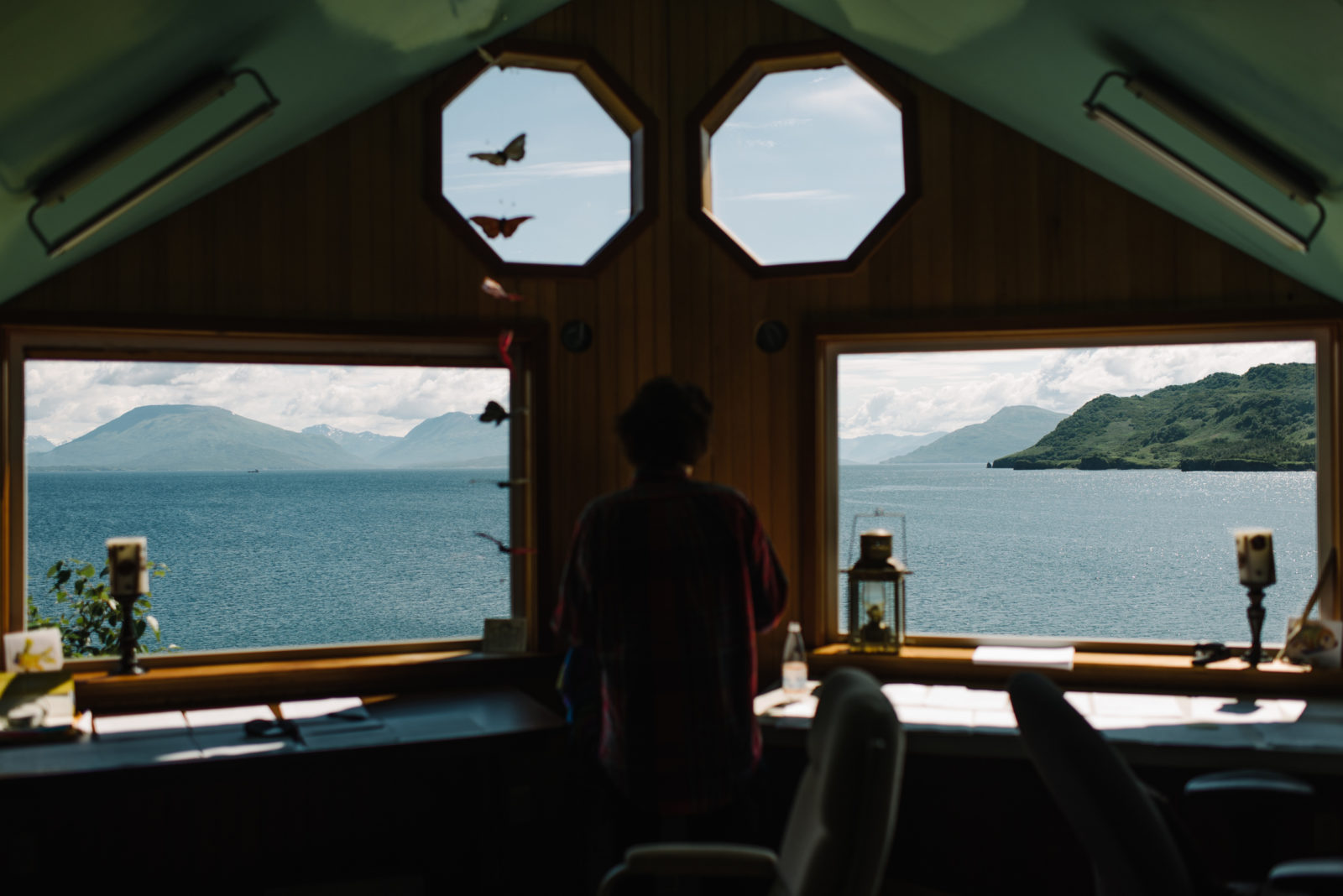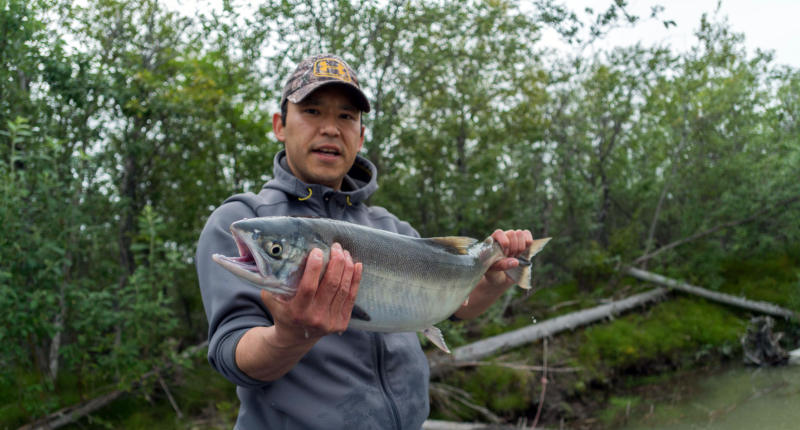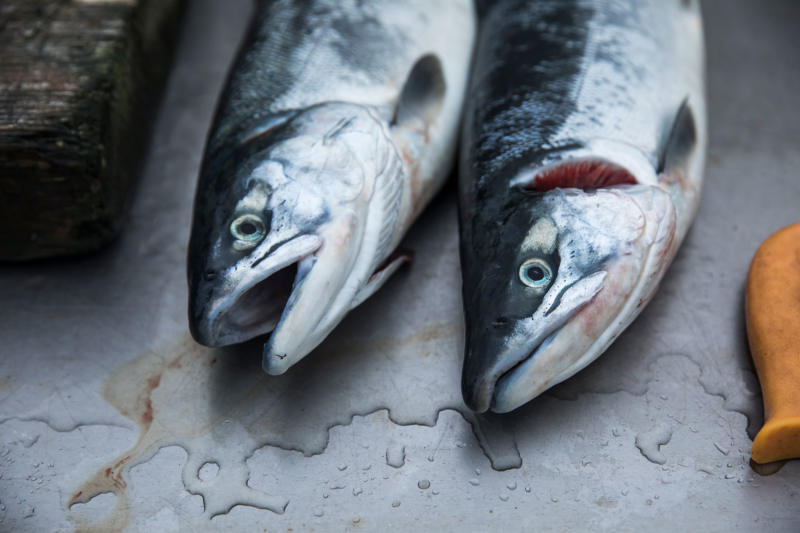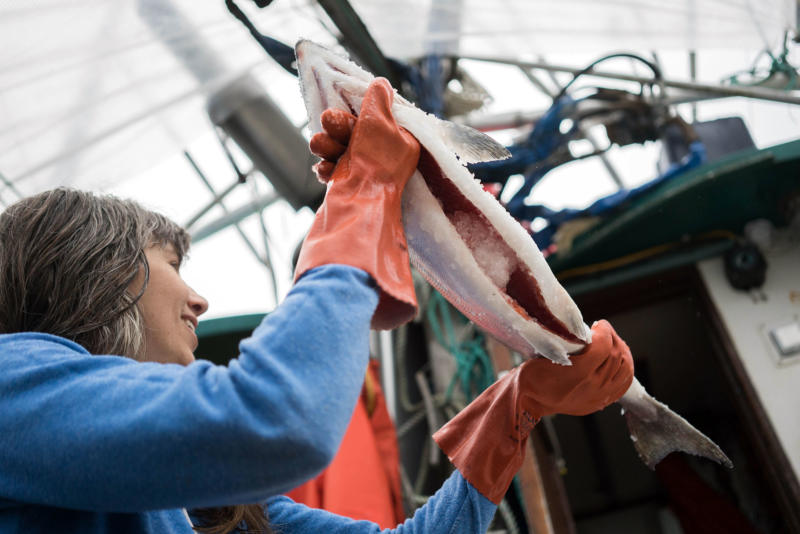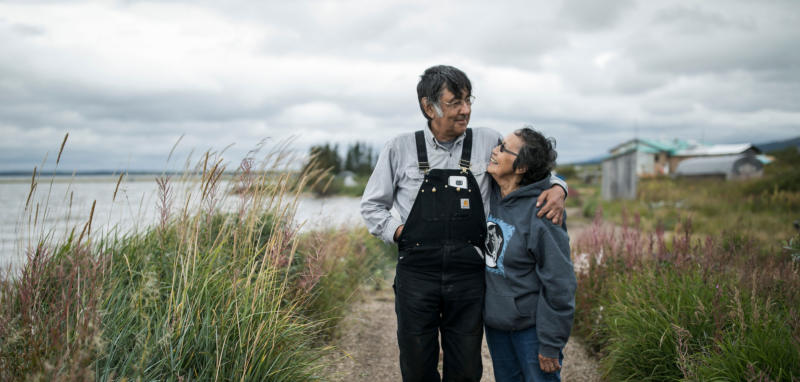Dewitt is running the motor, a 40-horse Johnson. It moves us efficiently over the water, which is a milky green this morning. I have been watching the water since I got here; every day its hue has shifted from the day before. I don’t know if I will ever tire of its colors. As we approach the corks of the net, I follow Duncan’s lead, and with him lean over the side of the skiff and plunge my arms into the water to pick up the net—the ocean’s forty-something temperature a shock to my skin. We pull the net laboriously from the water up over the railings and into the skiff.
It’s almost noon now. We’ve been out four hours and I’m hungry. I have to pee, and so does Duncan and his father. “Well, I guess I gotta shake the dew off my lily,” DeWitt intones in a homey father’s voice, his Oklahoma accent still traceable, though he left during the Dust Bowl of the early thirties. I smile at Duncan, he smiles indulgently and I turn around. I like this, that we can live together this way. When they’re done, it’s my turn.

